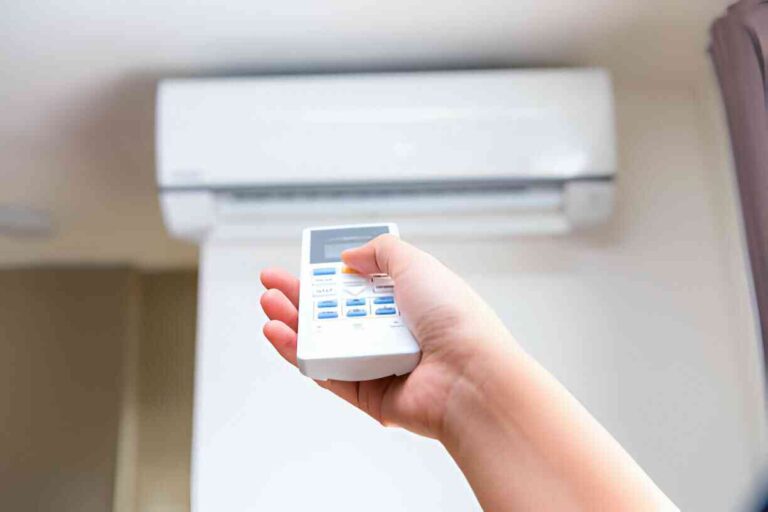HVAC stands for Heating, Ventilation, and Air Conditioning. It refers to the technology and systems used to control indoor environmental conditions such as temperature, humidity, air quality, and airflow within buildings, vehicles, and other enclosed spaces. HVAC systems are essential for maintaining comfort and air quality in residential, commercial, and industrial settings. They can include various components such as furnaces, air conditioners, heat pumps, ventilation systems, air filters, and thermostats, all working together to regulate the indoor climate.
when was hvac invented
The development of heating, ventilation, and cooling systems has evolved over centuries, with various civilizations contributing to the advancement of these technologies. However, the modern concept of HVAC systems began to take shape in the 19th century with the advent of steam heating systems and the understanding of thermodynamics.
One notable figure in the history of HVAC is Willis Haviland Carrier, who is often credited as the inventor of modern air conditioning. In 1902, Carrier developed the first system to control humidity in a printing plant, which also had the side effect of cooling the air. This invention laid the foundation for modern air conditioning technology, and Carrier went on to establish the Carrier Engineering Corporation, which played a significant role in popularizing air conditioning for commercial and residential use.
So, while specific components and concepts of HVAC have been around for much longer, the modern understanding and development of HVAC systems, particularly air conditioning, can be traced back to the late 19th and early 20th centuries.
why hvac system is required
HVAC systems are required for several reasons:
- Temperature Control: HVAC systems help regulate indoor temperatures to maintain comfort levels, especially in extreme weather conditions. They can provide heating during cold seasons and cooling during hot seasons.
- Humidity Regulation: HVAC systems can control humidity levels within indoor spaces. Proper humidity levels are essential for comfort and can also help prevent issues such as mold growth and damage to furniture or electronics.
- Air Quality: HVAC systems play a crucial role in maintaining indoor air quality by filtering out pollutants, dust, allergens, and other contaminants. They can also introduce fresh outdoor air to improve ventilation and reduce indoor air pollution.
- Health and Comfort: Comfortable indoor environments contribute to improved health, productivity, and overall well-being. HVAC systems help create conditions that support human comfort and performance.
- Preservation of Goods: In commercial and industrial settings, HVAC systems are essential for preserving perishable goods, maintaining optimal conditions for manufacturing processes, and protecting sensitive equipment.
- Energy Efficiency: Modern HVAC systems are designed to be energy-efficient, helping to reduce energy consumption and lower utility costs. They achieve this through advancements in technology such as variable-speed motors, smart thermostats, and energy-efficient components.
- Compliance and Regulations: Many building codes and regulations require the installation of HVAC systems to ensure occupant safety, comfort, and health. Compliance with these standards is necessary for obtaining building permits and certifications.
Overall, HVAC systems are indispensable for creating comfortable, healthy, and sustainable indoor environments in residential, commercial, and industrial buildings.
is hvac hard to learn
The difficulty of learning HVAC (Heating, Ventilation, and Air Conditioning) can vary depending on several factors:
- Complexity of Systems: HVAC systems can be quite complex, involving various components, technologies, and principles of thermodynamics, fluid mechanics, and electrical engineering. Understanding how these systems work and how to design, install, maintain, and troubleshoot them requires a solid grasp of technical concepts.
- Training and Education: Formal education and training programs in HVAC are available, ranging from vocational training and trade schools to associate or bachelor’s degree programs in HVAC engineering or technology. These programs provide structured learning opportunities and hands-on experience to develop the necessary skills.
- Practical Experience: Hands-on experience is crucial for mastering HVAC. Apprenticeships, internships, or entry-level positions allow individuals to gain practical experience under the guidance of experienced professionals. Learning to work with HVAC equipment, tools, and systems in real-world settings is essential for proficiency.
- Continuing Education: HVAC technology is constantly evolving, with new advancements and regulations shaping the industry. Professionals in the field must stay updated with the latest developments through continuing education, certifications, and industry conferences.
- Problem-Solving Skills: HVAC technicians often encounter complex problems that require analytical thinking and troubleshooting skills. Developing the ability to diagnose issues, identify solutions, and implement repairs efficiently is an important aspect of learning HVAC.
Overall, while learning HVAC can be challenging due to its technical nature and breadth of knowledge required, it is certainly achievable with dedication, persistence, and the right training and resources. Like any skill, proficiency in HVAC comes with experience and ongoing learning.
are hvac companies profitable
HVAC (Heating, Ventilation, and Air Conditioning) companies can be profitable, but profitability can vary based on several factors:
- Market Demand: The demand for HVAC services can fluctuate based on factors such as seasonal changes in weather, economic conditions, and construction activity. Companies operating in regions with high demand for heating and cooling services may have more opportunities for profitability.
- Competition: The level of competition in the HVAC industry can impact profitability. In highly competitive markets, companies may need to differentiate themselves through factors such as service quality, pricing, reputation, and customer satisfaction to maintain profitability.
- Efficiency and Costs: Efficient operations and effective cost management are critical for maintaining profitability. This includes factors such as optimizing inventory management, controlling labor costs, minimizing overhead expenses, and ensuring effective use of resources.
- Technology and Innovation: HVAC companies that stay abreast of technological advancements and innovation in the industry may have a competitive edge. Offering energy-efficient solutions, smart HVAC systems, and advanced services can attract customers and contribute to profitability.
- Customer Relationships: Building strong relationships with customers, providing excellent customer service, and fostering repeat business and referrals can contribute to long-term profitability.
- Regulations and Compliance: Compliance with industry regulations, licensing requirements, and environmental standards may impact operational costs but is essential for maintaining legal compliance and reputation.
Overall, while HVAC companies can be profitable, success in the industry requires strategic planning, efficient operations, customer satisfaction, and adaptation to market conditions and technological advancements.
do hvac apprentices get paid
Yes, HVAC apprentices typically receive compensation for their work. The specific pay can vary depending on factors such as the employer, location, level of experience, and the structure of the apprenticeship program.
In many cases, HVAC apprentices are paid a percentage of the wage that a fully trained technician would earn. This percentage often increases as the apprentice gains more experience and progresses through the program. Additionally, some apprenticeships may offer periodic raises or bonuses based on milestones or achievements.
It’s important to note that while apprentices are learning on the job, they are also contributing to the company by assisting with tasks under the supervision of experienced technicians. As such, they are generally compensated for their time and work, albeit at a lower rate compared to fully trained technicians.
Apprenticeships in the HVAC industry provide valuable hands-on experience, on-the-job training, and the opportunity to earn a wage while learning the trade. This combination of education and income can make HVAC apprenticeships an attractive option for individuals interested in pursuing a career in the field.
which hvac units are the best
Determining the “best” HVAC units can depend on various factors including your specific needs, budget, and preferences. However, several HVAC brands are well-regarded in the industry for their quality, reliability, energy efficiency, and performance. Here are a few notable HVAC brands:
- Carrier: Carrier is often considered one of the pioneers in the HVAC industry and is known for its innovative heating and cooling solutions. They offer a wide range of products including furnaces, air conditioners, heat pumps, and ductless systems.
- Trane: Trane is another reputable HVAC brand known for its durable and energy-efficient products. They offer a comprehensive range of heating, cooling, and air quality solutions for residential, commercial, and industrial applications.
- Lennox: Lennox manufactures high-quality heating, cooling, and air quality products known for their reliability and innovation. They offer a variety of HVAC systems, including furnaces, air conditioners, heat pumps, and indoor air quality solutions.
- Rheem: Rheem is a well-established HVAC brand known for its efficient and affordable heating and cooling systems. They offer a range of products including furnaces, air conditioners, heat pumps, and water heaters.
- Mitsubishi Electric: Mitsubishi Electric is known for its ductless mini-split systems, which provide efficient heating and cooling solutions without the need for ductwork. They are highly regarded for their energy efficiency and quiet operation.
- Daikin: Daikin is a global leader in HVAC technology, offering a wide range of heating, cooling, and ventilation solutions for residential, commercial, and industrial applications. They are known for their energy-efficient products and advanced technology.
When choosing an HVAC unit, it’s essential to consider factors such as the size and layout of your space, climate conditions, energy efficiency ratings, warranty coverage, and budget. Additionally, consulting with HVAC professionals can help you select the best unit for your specific needs and ensure proper installation and maintenance.
hvac businesses requirements to start hvac company
Starting an HVAC company involves several steps and considerations. Here are some key requirements and steps to consider:
- Education and Training: Obtain the necessary education and training in HVAC systems and technology. This may include completing HVAC courses, obtaining relevant certifications or licenses (which vary by location), and gaining practical experience through apprenticeships or working in the field.
- Business Plan: Develop a comprehensive business plan that outlines your company’s goals, target market, services offered, pricing strategy, marketing plan, financial projections, and growth strategy. A well-thought-out business plan will serve as a roadmap for your company’s success and help secure financing if needed.
- Legal Structure and Licensing: Choose a legal structure for your business, such as sole proprietorship, partnership, limited liability company (LLC), or corporation. Obtain any necessary business licenses, permits, and registrations required to operate an HVAC business in your area.
- Insurance: Obtain appropriate insurance coverage for your HVAC business, including general liability insurance, workers’ compensation insurance, and any other relevant insurance policies to protect your business and employees.
- Equipment and Tools: Invest in the necessary equipment, tools, and vehicles needed to provide HVAC services effectively. This may include HVAC units, tools for installation and repair, diagnostic equipment, and service vehicles.
- Supplier Relationships: Establish relationships with reputable suppliers and vendors to source HVAC equipment, parts, and supplies needed for your business. Consider factors such as product quality, pricing, and availability when selecting suppliers.
- Marketing and Branding: Develop a marketing strategy to promote your HVAC business and attract customers. This may include creating a professional website, establishing a presence on social media, networking with local businesses and contractors, and implementing advertising campaigns.
- Hiring and Training Employees: If you plan to hire employees, recruit skilled HVAC technicians and staff who are knowledgeable and experienced in the field. Provide ongoing training and development opportunities to ensure that your team stays up-to-date with industry trends and best practices.
- Customer Service and Satisfaction: Focus on providing excellent customer service and satisfaction to build a loyal customer base and generate repeat business and referrals. Respond promptly to customer inquiries, address concerns and complaints professionally, and strive to exceed customer expectations.
- Compliance and Regulations: Ensure compliance with all relevant laws, regulations, and industry standards governing HVAC businesses, including building codes, environmental regulations, and safety requirements. Stay informed about any changes or updates to regulations that may affect your business operations.
Starting an HVAC business requires careful planning, dedication, and hard work, but with the right approach, it can be a rewarding venture that offers opportunities for growth and success in the long term.
is doing hvac for a living worth it
Whether pursuing HVAC as a career is “worth it” depends on individual circumstances, interests, and goals. Here are some factors to consider when deciding if HVAC is the right career choice for you:
- Job Stability: HVAC technicians are in demand year-round, as heating and cooling systems require maintenance, repair, and installation regardless of economic conditions. This can provide job stability and consistent work opportunities.
- Income Potential: HVAC technicians can earn a competitive salary, especially as they gain experience and expertise in the field. Additionally, HVAC professionals may have the opportunity for overtime pay, bonuses, and advancement to supervisory or managerial roles.
- Skill Development: Working in HVAC allows you to develop valuable technical skills in heating, ventilation, air conditioning, and refrigeration systems. These skills are transferable and can open up opportunities in related fields such as facilities maintenance, building automation, or energy management.
- Variety of Work: HVAC technicians may work on a variety of projects, from residential installations and repairs to commercial or industrial HVAC systems. This variety can keep the job interesting and engaging.
- Job Satisfaction: Many HVAC professionals find satisfaction in solving complex problems, helping customers maintain comfortable indoor environments, and seeing tangible results from their work.
- Flexibility: HVAC technicians may have the flexibility to work for a company, start their own business, or work as independent contractors. This flexibility can allow for greater control over work hours, schedule, and career trajectory.
- Physical Demands: HVAC work can be physically demanding, involving lifting heavy equipment, working in confined spaces, and exposure to extreme temperatures. It’s essential to consider if you’re comfortable with the physical demands of the job.
- Training and Education: Pursuing a career in HVAC typically requires completing training programs, obtaining certifications, and gaining practical experience. It’s important to be committed to ongoing learning and professional development to stay competitive in the field.
Ultimately, whether HVAC is worth it as a career depends on your personal interests, strengths, and career goals. If you enjoy hands-on work, problem-solving, and working in a technical field, HVAC can be a rewarding and fulfilling career choice. However, it’s essential to research the industry, understand the requirements and demands of the job, and consider your long-term career objectives before making a decision.



